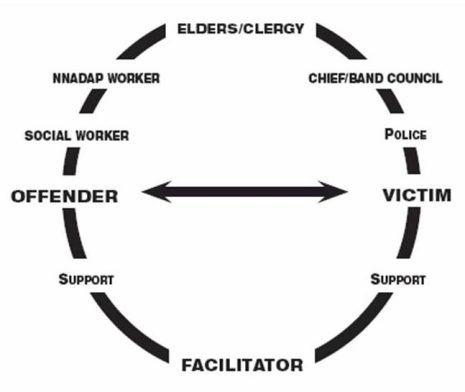Outcomes & Agreements
With dispositions through the Court, Youth may be required to do some form of Community Service work such as:
- Apologies and apology letters
- Community Service Hours
- Restitution
- Attending a treatment program
- Attending school
Intent of the Program
The Community Youth Restorative Justice Program aims to guide youth towards a better understanding of how their behavior affects others within the community. Once a referral is made, youth will work towards making amends by mending harm and giving back to the community in a meaningful way. through the process, youth will grain a new insight into the cause and effects of their behavior and how it affects those around them. This program also helps youth to develop new skills and interests, an build meaningful connections within their community.

Restorative Justice Circle "MAA-MII-CHI-KE-WIN"
Circle Participants
- Victim and their Supports
- Offender and their Supports
- Key persons involved in helping the offender and victim: Youth Workers, Social Workers, Teachers, Counselors, etc.
- Elders & Leadership